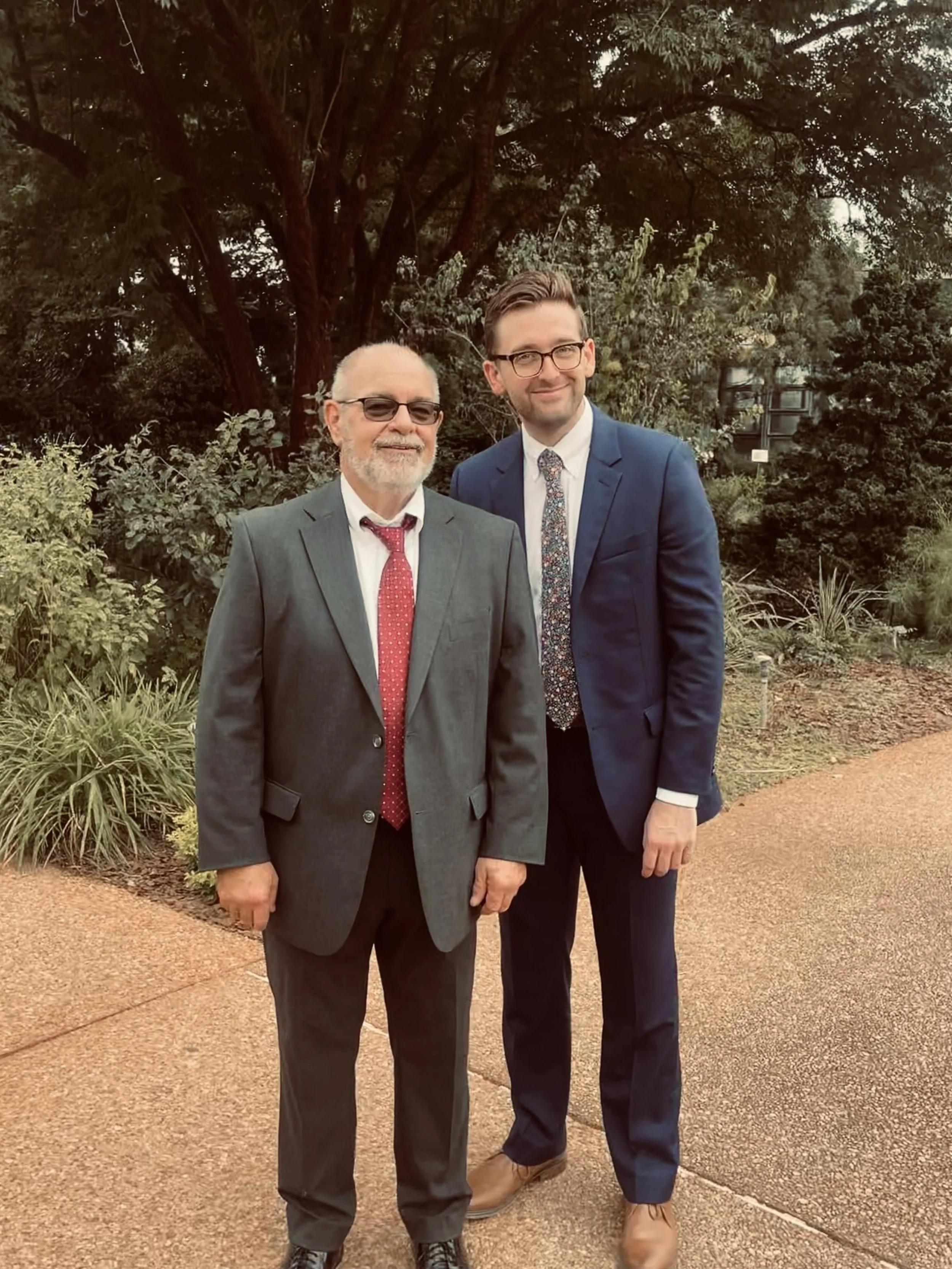Think Horses, Not Zebras
by Nicholas Bunda
He was green. For weeks, I watched Frank’s skin turn green. My father-in-law is a short, stocky man with incredible physical strength and an unmatched work ethic. As an executive for the Boy Scouts of America and a devoted husband, father, and grandfather, he never stopped moving. But recently, he was losing weight and strength. I convinced myself he was just aging. After all, nobody keeps their heroic dad-strength forever. Two years earlier, Frank had been diagnosed with colorectal adenocarcinoma. He underwent surgery and chemotherapy and, as far as we knew, was cancer-free. But as a budding physician, I couldn’t ignore the greenish hue of his skin, the weight loss, and his fading vitality. I feared the cancer had returned.
Frank was admitted to the hospital after a cardiac episode. I remained by his side for two weeks, questioning every consultant who entered the room. Cardiology thought it was atrial fibrillation; pulmonology suspected COVID-19; infectious disease pointed to bacteria; and the hospitalist suspected autoimmunity. Nobody agreed. Repeatedly, I suggested a recurrence of cancer, only to be quickly dismissed.
Each morning, I reviewed his lab results and buried myself in the literature, desperate for answers. His platelets were dangerously low, his skin mottled with red and purple blotches, and his IV sites repeatedly failed, leaving large, painful bruises. Daily transfusions of blood and platelets weren’t enough. Again, I suggested cancer. We asked for a bone marrow biopsy but were denied.
Frank had been in my life for 18 years – longer than I had lived without him. He was a second father to me. Spending every day in the hospital with him allowed me to witness the best and worst of medicine. Some physicians were patient, compassionate, and honest about their uncertainty. Others were dismissive, annoyed by questions, and confident in their misjudgment. Despite my pleas, we didn’t see his oncologist until over a week had passed. I’ll never forget the day she came. Frank, bruised and emaciated, lay silently as she swept into the room with her purse on her shoulder. “Frank, I’m sorry you’re not feeling well, but this is not cancer,” she declared before leaving just as abruptly. Fourteen days later, I held my wife as we buried her father.
In medical school, we’re taught, “When you hear hoofbeats, think horses, not zebras.” When they eventually performed the biopsy, it revealed metastatic colorectal carcinoma to the bone marrow – findings seen in less than 2% of cases. Frank was a zebra. While earlier diagnosis wouldn’t have changed his prognosis, the delay haunts me. I still think about it every day. William Osler once said, “Listen to your patient; he is telling you the diagnosis.” I often reflect on what I owe my future patients. Will I listen? Will I consider their ideas? And when I inevitably miss a zebra, will I have the humility to face their family and own my mistakes? Frank would expect nothing less.
Photograph of Nick and Frank
Nicholas Bunda is a fourth-year medical student at the UTCOMLS
